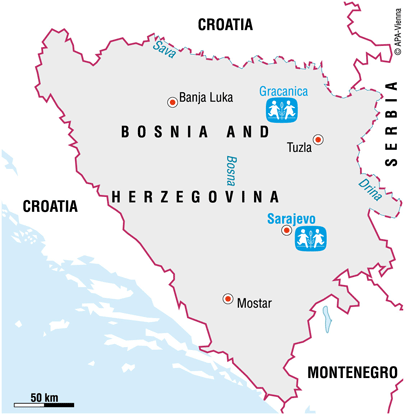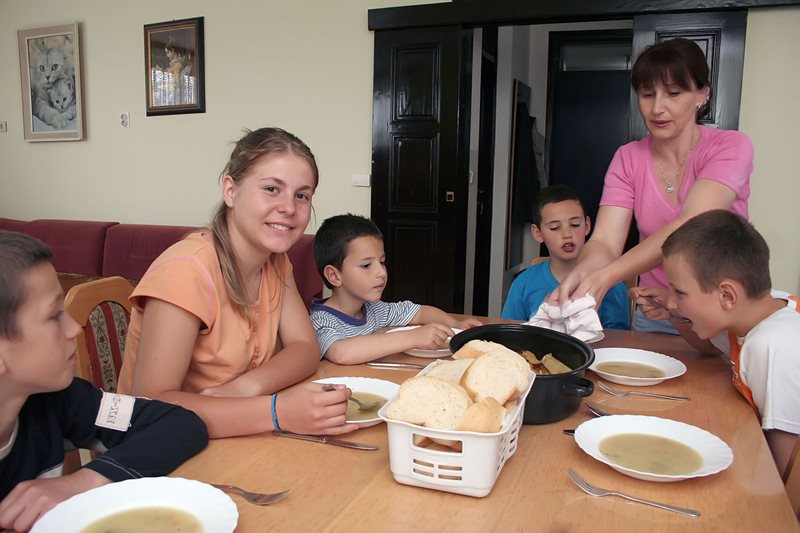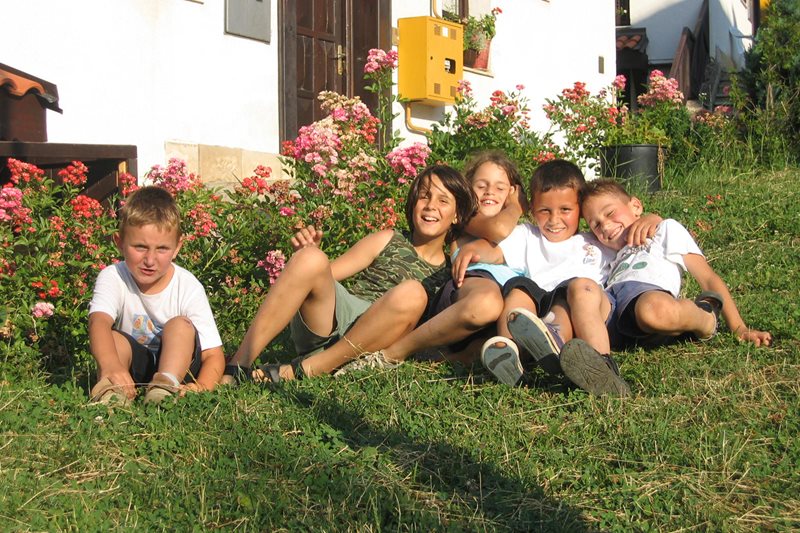
Vi er i Bosnia and Herzegovina
A country at the heart of the Balkans

Bosnia and Herzegovina is located on the Balkan Peninsula in Southeast Europe, bordering Croatia in the north and west, and Serbia and Montenegro in the east and the south. The capital is Sarajevo with around 300,000 inhabitants.
The population is 3.3 million, of which nearly half are Bosnians, one third are Serbs, and about one fifth are Croats. Children under the age of 18 account for nearly one fifth of the population. Approximately two fifths of the population are Muslim, one third are Serbian Orthodox and 15 per cent are Roman Catholic.
Recovering from the war
Bosnia and Herzegovina is still recovering from the war which took place in the 1990s. At the end of the war the infrastructure and economy had been destroyed and two million people had been displaced. The water and electricity supply had to be reconnected and schools, homes and roads had to be rebuilt. The unemployment rate is estimated to be a staggering 37 per cent (2019 est.). Young people, women and people with disabilities and the Roma have the highest unemployment rate. Most people are employed in the services, with industry and agriculture also providing employment.
Official national figures estimate that around 17 per cent of the population live below the nationally-defined poverty line. People living in rural areas are particularly affected by poverty. Poverty-stricken households include those with three or more children and those comprised of refugees or displaced persons.
The provision of services such as health and education is shared between different levels of government and remains inefficient. Many people, particularly those in rural areas, are not covered by health care.
Children in need of protection

Many of the poor and vulnerable children are from disadvantaged groups, differentiated by ethnicity, religion, disability, gender or the rural/urban divide. Children from families who were internally displaced during the war and those with disabilities account for the highest number of children in need.
Access to primary education is high but some groups have limited access. Children in rural areas have lower school attendance rates. Roma children are often excluded because they are not registered with the authorities. Children with disabilities have limited access because schools do not have adequate disabled facilities.
Young people do not have many opportunities for further vocational education or training. For young people from disadvantaged backgrounds, with few qualifications and little experience, these opportunities are even more limited.
SOS Children's Villages in Bosnia and Herzegovina
We started working in Bosnia and Herzegovina in 1994.
Strengthening families: We work with local organisations and the communities to support vulnerable families so that they can stay together. We make sure that children can go to school and have access to medical care. We also provide legal and psychological support to families.
Care in families: Children who can't live with their families find a loving home in the SOS families and foster families. They grow up with their brothers and sisters, and are cared for by SOS parents. The foster families have been selected and trained by SOS Children's Villages to ensure that the children are cared for to the highest standards set by SOS Children's Villages. In order to do this, we provide continuous social and emotional support. Wherever possible, we try to reunite the children with their families of origin.
Education: Since 2000, we have offered support for young children from local vulnerable families; they can attend the kindergarten and receive pre-school education which will prepare them for school. In the autumn of 2003 a Play-Mobile Bus Project was started. We aim to keep children off the streets and grant them the opportunity to play and to learn about their rights.
Support for young people: Young people find it hard to become independent. We offer both practical and psychological support to young people while they finish their studies and improve their skills. We collaborate with local businesses so that young people have access to internships, scholarships and vocational training.Website of SOS Children's Villages Bosnia and Herzegovina
(available in Bosnian/Croatian and English)